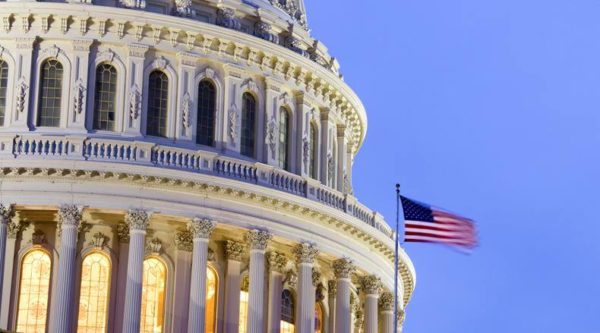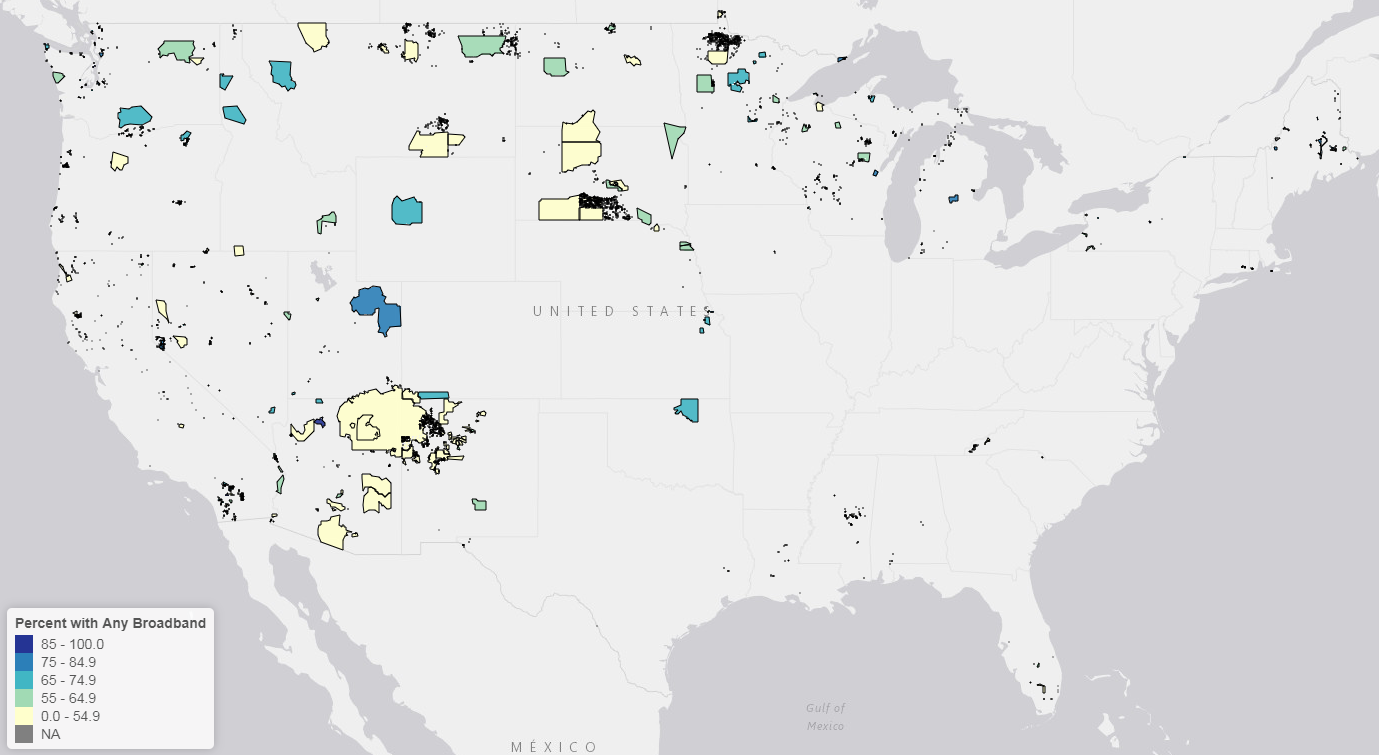
- Details
- By Native News Online Staff
WASHINGTON — Rep. Deb Haaland (D-NM), one of the first Native American women elected to Congress, and Sen. Elizabeth Warren (D-MA) announced a historic bill that would affirm tribal nations’ and Native Hawaiian organizations’ ownership of broadband spectrum over their lands to deploy wireless internet services.
The DIGITAL Reservations Act would affirm tribal sovereignty to spectrum rights for the first time in United States history by granting Native tribal nations full permanent access to spectrum licenses over tribal lands to fulfill true self-governance and self-management of modern natural resources on their lands.
The bill comes as the Federal Communications Commission has so far refused to extend the Rural Tribal Priority Window to apply for 2.5GHz spectrum over tribal lands beyond Aug. 3 amid the global COVID-19 pandemic.
If passed, this bill would eliminate the FCC’s role in selling spectrum rights off tribal lands without tribal consent and create the first Tribal Broadband Fund to immediately deploy life-saving wireless services on tribal lands.
 For federally recognized American Indian reservations in the contiguous 48 states. The national county-level average percentage of households with broadband access is 78 percent. The average rate in completely rural counties is 65 percent. Map courtesy Federal Reserve Bank of Minneapolis
For federally recognized American Indian reservations in the contiguous 48 states. The national county-level average percentage of households with broadband access is 78 percent. The average rate in completely rural counties is 65 percent. Map courtesy Federal Reserve Bank of Minneapolis
The bill seeks to rectify a problem that has existed on Indian reservations and tribal lands. In comparison to the rest of the country, where 92 percent of Americans have access to broadband services, only 65 percent of Indian Country has access to wireless services. The lack of service presents problems in live-saving situations, which include missing and murdered Indigenous women, suicide situations and telehealth services. The lack of wireless also impacts education and employment opportunities.
“Connectivity is key to ensuring Native Americans have access to education resources, telehealth, and public safety, but Native Americans living on reservations have been left behind in the digital divide, and sovereign Native Nations encounter significant barriers to access spectrum rights on their Tribal lands to deploy wireless broadband to their communities. Our DIGITAL Reservations bill will help Tribes fully realize self-governance and protect their sovereign right to manage their own natural resources on Tribal lands and ensure Native communities aren’t stuck in the digital divide,” Haaland said in a press release.
“Wireless broadband access on Tribal lands is worse than just about anywhere else in America, and more than a third of those living on Tribal lands don’t have high-speed broadband at all," Sen. Warren said in a press release. "Without it, Native communities are shut out of a 21st-century economy and have limited access to life-saving services—a crisis that is even more urgent during the COVID-19 pandemic. Congresswoman Haaland’s and my bill to recognize Native Nations’ ownership of spectrum over their lands affirms their sovereignty and provides a path to desperately needed connectivity.”
The DIGITAL Reservations Act affirms Native nation’s rights to broadband spectrum specifically by:
- Directing the FCC to allocate to American Indian tribes and Native Hawaiian organizations autonomy of spectrum licenses over tribal lands to deploy wireless broadband and digital services so tribal citizens can access critical services like public safety, healthcare, education, employment, voting, the Census, and COVID-19 resources like any person living off Tribal lands.
- Prohibiting the FCC from selling tribal spectrum licenses at private auctions to for-profit corporations.
- Permanently eliminating the public availability of spectrum over tribal lands.
- Creating the FCC’s first Tribal Broadband Fund so American Indians, Alaska Natives, and Native Hawaiians living on tribal lands have access to wireless digital services and network infrastructure for the first time.
- Ending failed federal “Reservation Era” policies of the late 1800s by eliminating the FCC’s ability to sell tribal spectrum resources, or natural resources, to for-profit corporations without tribal consultation.
- Strengthening the full realization of Native Nations’ inherent self-governance over activities taking place on their lands.
The pandemic has highlighted the impacts that lack of connectivity have in Native communities, with alarming rates of COVID-19 infections and lack of resources to manage the spread of the virus. Sovereign Native nations, Native organizations, Native-owned businesses, and progressive human rights organizations praised the introduction of the DIGITAL Reservations Act. Full list of supporting organizations is available here.
More Stories Like This
Native News Weekly (August 25, 2024): D.C. BriefsNative News Weekly (February 22, 2026): D.C. Briefs
NCAI Releases Sttatement on the Passing of Rev. Jesse Jackson
Colusa Indian Energy Participates in Port of Quincy Town Hall on Columbia Basin Power Project
Q&A: Jingle Dress Dancer Answered Call to Ceremony in Face of ICE Violence
Help us defend tribal sovereignty.
At Native News Online, our mission is rooted in telling the stories that strengthen sovereignty and uplift Indigenous voices — not just at year’s end, but every single day.
Because of your generosity last year, we were able to keep our reporters on the ground in tribal communities, at national gatherings and in the halls of Congress — covering the issues that matter most to Indian Country: sovereignty, culture, education, health and economic opportunity.
That support sustained us through a tough year in 2025. Now, as we look to the year ahead, we need your help right now to ensure warrior journalism remains strong — reporting that defends tribal sovereignty, amplifies Native truth, and holds power accountable.
 The stakes couldn't be higher. Your support keeps Native voices heard, Native stories told and Native sovereignty defended.
The stakes couldn't be higher. Your support keeps Native voices heard, Native stories told and Native sovereignty defended.
Stand with Warrior Journalism today.
Levi Rickert (Potawatomi), Editor & Publisher

